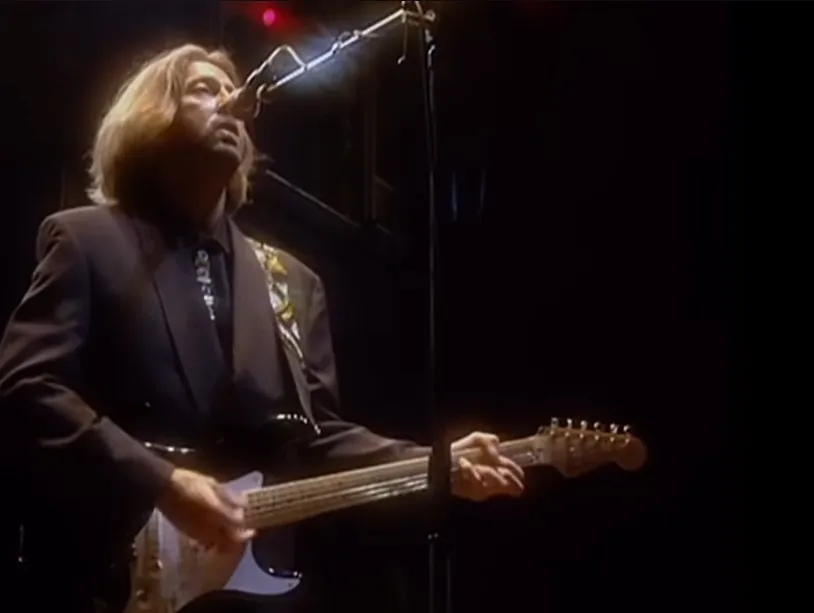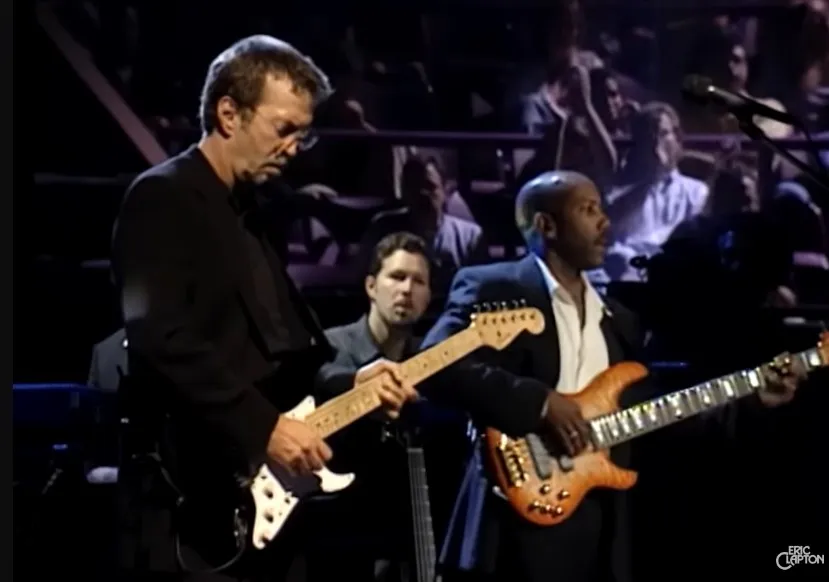About The Song
(Watch the video below)
"Tears in Heaven" is one of Eric Clapton's most poignant and personal songs, touching listeners worldwide with its emotional depth and sincerity. Released in 1992, the song addresses Clapton's immense grief and sorrow following the tragic death of his four-year-old son, Conor. The profound emotions encapsulated in this song make it a standout piece in Clapton's extensive musical repertoire.
The inspiration for "Tears in Heaven" comes from an unimaginably tragic event in Clapton's life. On March 20, 1991, Conor fell from the 53rd-floor window of a New York City apartment building. This devastating loss left Clapton in deep mourning, and "T Tears in Heaven" emerged as a way for him to process and express his grief.
Clapton's ability to channel his pain into his music is a testament to his artistry and emotional honesty. The song is not just a tribute to Conor but also a reflection of Clapton's own vulnerability and humanity. It's a rare glimpse into the personal life of an artist who has often been viewed as a guitar god, revealing a man grappling with profound loss and heartache.

"Tears in Heaven" is a beautifully crafted ballad that combines elements of rock and acoustic music. The song is primarily acoustic, featuring Clapton's gentle guitar work, which underscores the song's somber and reflective mood. The simplicity of the arrangement allows the lyrics and Clapton's heartfelt vocals to take center stage.
The chord progression is relatively simple, yet it is this simplicity that enhances the song's emotional impact. The melody is hauntingly beautiful, weaving through the lyrics with a sense of both sorrow and hope. Clapton's vocal performance is tender and restrained, conveying a deep sense of pain and longing without becoming overly dramatic.
The lyrics of "Tears in Heaven" are deeply moving, as Clapton asks a series of poignant questions about loss, the afterlife, and the possibility of reunion with his son in heaven. The chorus, "Would it be the same if I saw you in heaven? / Would it be the same if I saw you in heaven?" captures the essence of Clapton's grief and his yearning for solace.

The verses explore themes of pain, acceptance, and hope. Lines like "Time can bring you down, time can bend your knees / Time can break your heart, have you begging please" reflect the universal experience of grief, while also acknowledging the passage of time as a potential healer. However, there is also an underlying sense of uncertainty and doubt about the future and the possibility of healing from such a profound loss.
"Tears in Heaven" was released as a part of the soundtrack for the film "Rush" and later included in Clapton's "Unplugged" album. The song received widespread critical acclaim and commercial success, reaching the top of the charts in several countries. It won three Grammy Awards in 1993, including Song of the Year, Record of the Year, and Best Male Pop Vocal Performance.
The song's impact goes beyond its commercial success. It resonated deeply with listeners, many of whom found solace and understanding in Clapton's expression of grief. "Tears in Heaven" became an anthem for those who have experienced loss, offering a sense of shared experience and empathy.
Over the years, "Tears in Heaven" has remained one of Clapton's most beloved and enduring songs. It is often performed in a stripped-down, acoustic setting, which enhances its emotional intensity. Clapton's live performances of the song are marked by a palpable sense of introspection and reverence, as he continues to honor his son's memory.
In 2004, Clapton announced that he would no longer perform "Tears in Heaven" live, stating that he had moved on from the emotions that inspired the song. However, he revisited the song in later years, demonstrating its lasting significance in his life and career.
The creation and success of "Tears in Heaven" marked a significant moment in Clapton's musical journey. It showcased his ability to convey deep personal emotions through his music, further solidifying his reputation as one of the greatest songwriters and musicians of his generation. The song's introspective and acoustic nature also influenced Clapton's subsequent work, leading to a more nuanced and mature sound.

The "Unplugged" album, which featured "Tears in Heaven," became one of Clapton's best-selling records, winning several awards and introducing his music to a new generation of fans. The album's success underscored the power of acoustic music and intimate performances, a trend that continued to gain popularity in the 1990s.
"Tears in Heaven" is more than just a song; it is a deeply personal and universally resonant expression of grief, loss, and the hope for eventual healing. Eric Clapton's ability to transform his profound sorrow into a piece of music that touches so many is a testament to his artistry and humanity. The song's enduring popularity and impact highlight its significance not only in Clapton's career but also in the broader landscape of music.
Through "Tears in Heaven," Clapton invites listeners into his personal world, sharing his pain and vulnerability in a way that fosters connection and empathy. The song stands as a poignant reminder of the power of music to heal, to bring people together, and to provide comfort in the face of life's most challenging moments.



